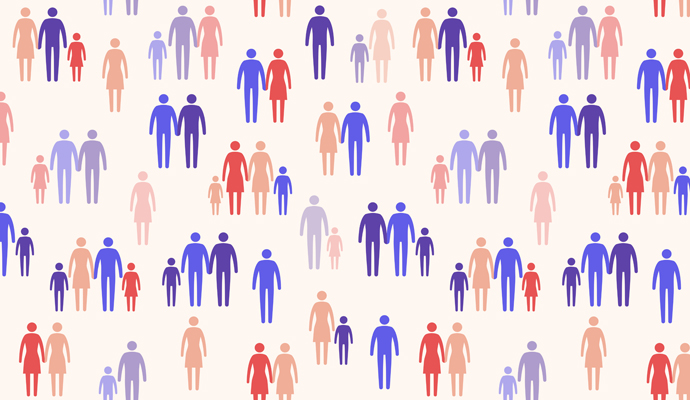- Safety Concerns Lead COVID-19 Vaccine Hesitancy Among Latino Parents
Particularly, the researchers found that those posed with hypothetical situations in which COVID-19 vaccination had become a social norm, respondents became more likely to say they would also get the vaccine.
After being told others are getting the vaccine, the researchers saw a 2.4 percent relative increase in the number of people who said they will “probably” get the shots and a 3.8 percent relative increase in the number of those who said they will “definitely” get the vaccine. Those effects were more salient among those who said they didn’t know if they would get the vaccine at survey baseline.
Unfortunately, the researchers also observed that the extent to which people perceive vaccination as a social norm is low. People are generally unaware of how common vaccine acceptance is, which the researchers said could be adding fuel to the fire of vaccine hesitancy.
“Underestimation of vaccine acceptance by others could be partially caused by processes—such as news coverage of the challenges posed by vaccine hesitancy or diffusion of anti-vaccine messages on social media—that make hesitancy more salient,” the research team wrote in Nature Communications.
“But once they know that the majority has already received or are going to get the vaccine, they feel safer to get the vaccine,” Avinash Collis, co-author and assistant professor of information, risk, and operations management at The University of Texas McCombs School of Business, said in a public statement.
These findings should offer more insight into public health messaging, especially as the US stares down a triple-demic of COVID-19, flu, and RSV.
“Our study shows that accurate information about what most other people are doing can substantially increase intentions to accept a COVID-19 vaccine,” Collis said.
The researchers recommended public health officials include more factual statements about how common vaccination truly is.
That said, they also acknowledged the need to address vaccine hesitancy, with threatens herd immunity. While the knee-jerk reaction may be to outline the perils of vaccine hesitancy, the researchers urged public health officials to contextualize such messaging with objective summaries of vaccine receipt, as well.
“Public health communications could present information about norms, perhaps correcting some people’s overestimation of the prevalence of vaccine hesitancy,” the researchers said. “Unlike other ongoing, frequently observable preventative behaviors, like mask wearing, people may have little information about whether others intend to or have accepted a vaccine—which suggests messages with this information could have substantial effects.”

